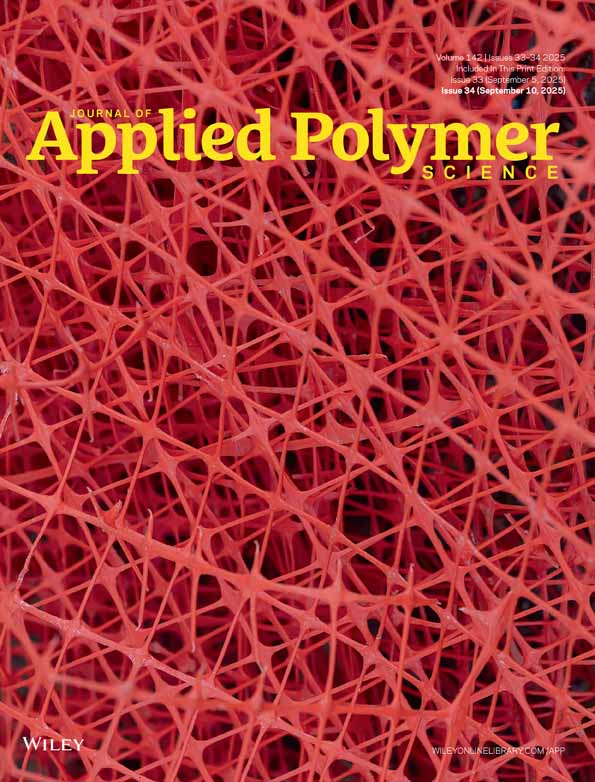Effect of chemical crosslinking on the structure and mechanical properties of polyurethane prepared from copoly(PPO–THF) triols
Abstract
Copoly(PPO–THF) (oxypropane–tetrahydrofuran) diol and triol were synthesized by cationic copolymerization of PPO–THF in the presence of 1,4-butanediol (BD) or 2,2′-dihydroxymethyl butanol (DHMB). The results of proton nuclear magnetic resonance verified the chemical structure of the obtained diol and triol. The amounts of the end hydroxyl group for the obtained triol and diol were measured by the end group analysis method. Linear (B-series) and crosslinked (T-series) polyurethanes were prepared from the diol and triol, respectively. The weight ratio of hard segment in the soft domain was calculated with Fourier transform infrared spectroscopy. Differential scanning calorimetry technology was used to investigate the structure of hard domains in B- and T-series polyurethanes. Mechanical properties studies of B- and T-series polyurethanes were carried out. Higher ultimate strength of T-series polyurethane than that of the B-series one was discussed. © 1998 John Wiley & Sons, Inc. J Appl Polym Sci 67:2163–2169, 1998




